ii SIPP
Your pension after death
Find out what will happen to your pension when you die.

Your pension could, potentially, be your biggest financial asset, so it’s common for people to worry about what will happen to that money when they die.
Will their hard-earned savings be lost or passed on to loved ones? And if your pot can be passed on to family, will they be lumbered with a hefty tax bill?
Getting the answers to these questions can give you invaluable peace of mind and – in many cases – help you plan your finances in a way that supports your family and safeguards your wealth for future generations.
Learn more about death benefits and what happens to your pension when you die with our guide.
Death benefits for different types of pension
Death benefits is the term given to payouts from a pension when the policyholder or member dies.
But unfortunately death benefits aren’t always straightforward and what you (or your husband, wife or partner and dependent children) gets will vary according whether it’s a defined contribution scheme or a defined benefit scheme (which will also have its own individual rules).
Death benefits for defined benefit pensions
Income
Defined benefit pensions will normally carry on paying an income to your dependents if you die either before, or after you started taking benefits.
However, it’s important to note that this will usually only be a portion of what you received (or would have received), for example half or two-thirds.
The exact rules and benefits will vary between schemes though, so always check what you and your family would be entitled to.
Dependents your scheme might pay death benefits to include:
- Your spouse or civil partner
- Anyone who was financially dependent on you when you died – including a partner that you weren’t married to
- Children in full-time education (aged under 23)
- Children of any age, if they have physical or mental impairments
Payments to spouses will typically continue until they die, however some schemes may cease payments if the recipient remarries. Provision for children and other dependents can vary, so it’s important to check the specific rules of your scheme.
For income tax purposes, income payments will be added to the recipient’s total income for the year, which could result in the pension being subject to tax at the recipient's tax rate.
If the annual rate of pension is small, your beneficiaries may also be given the option of commuting the value of the pension, instead taking this as a one-off lump sum payment which effectively extinguishes the benefits under the Scheme.
If you are not married or in a civil partnership, or do not have anyone that is financially dependent on you, your pension scheme rules may state that no pension payments will be made after your death. In this case your pension would effectively die with you.
Lump sums
Defined benefit pensions may also pay out lump sums in some circumstances.
These might include:
- Death in service pay out: If you are still working for your employer and paying into your pension when you die, there may be a death in service lump sum. This is essentially life cover and will normally be calculated as a multiple of your salary. It’s paid tax-free so long as you die before your 75th birthday.
- Refund of contributions: If you die before you retire and start taking benefits, your beneficiaries may also get a refund of the contributions you paid into the scheme. This will be taxable (excluding employer contributions).
- Pension protection lump sum: Some schemes will offer a guarantee that payments will continue for a fixed period (for example five or 10 years ) irrespective of when you die. This will be paid tax free if you die before age 75, but taxed as income from age 75 onwards.
- Trivial commutation lump sum death benefit: If your pension is valued at less than £30,000, your dependents may be able to take their benefits as a lump sum, instead of income. This money will be taxed as income, even when it's paid as a lump sum.
Death benefits for defined contribution pensions
When you die, any money you still have invested in defined contribution pensions can be passed on to your chosen beneficiaries.
The money should be payable either as a lump sum or left invested to provide a flexible income.
However, exactly how that money will be taxed depends on how old you are when you die.
Pension death benefits before age 75:
If you die before your 75th birthday, your pension will be passed to your chosen beneficiaries. There is zero income tax to pay on your remaining pension when taken out as income. If it is taken as a lump sum it will be tax-free subject to your remaining Lump Sum and Death Benefit Allowance (LSDBA).
Any lump sum death benefits paid from funds that were crystallised before 6th April 2024 will not be tested against the LSDBA, since they will have already been tested against the old Lifetime Allowance (LTA). The balance over your remaining allowance will be taxed at your beneficiary’s marginal rate of income tax.
Read more about Lump Sum Allowances.
However the death benefits must be paid, or designated or moved into another arrangement such as drawdown, within two years of the earlier of the following:
- The date your pension provider was notified of your death
- The date they could reasonably have been expected to know of your death
Pension death benefits after age 75
If you die after your 75th birthday the pension death benefits whether taken as a lump sum or as income, will be subject to income tax at the recipient's marginal tax rate when paid.
What are the death benefits if I bought an annuity?
If you used money from a defined contribution pension to buy guaranteed income with an annuity, death benefits are not automatically payable.
What happens will depend on the arrangements you put in place when you purchased the annuity. For example, if you set up a guarantee, payments will continue for the guarantee period, irrespective of when you die. Or, if you purchased a joint life annuity, payments will continue for your spouse or partner. Some people also buy value protection to protect a lump sum for loved ones after they die.
However, if you did not make any plans for payments to continue after your death or arrange value protection, payments will cease and no death benefits will be paid.
Will my family pay inheritance tax on pension death benefits?
Currently no IHT is be payable on pension death benefits because pensions fall outside your estate. However, from 6 April 2027 pensions will form part of your estate for IHT purposes. This means that if the total value of your estate exceeds your tax-free allowances, IHT may be payable on your pensions.
This will include unused funds in defined contribution pots, but it’s likely to be more complicated for defined benefit pensions. Income payments to dependents won’t be subject to IHT, but charges may be payable on other DB death benefits.
Please note: from 6 April 2027, pensions and death benefits will become subject to inheritance tax. Find out more here.
Nominating beneficiaries for pension death benefits
Pension providers have the discretion to decide who receives pension death benefits. It’s this discretion that currently means they fall out of your estate and protects your wealth from inheritance tax (IHT) – although that is set to change from April 2027.
However, while pension providers would naturally look to your spouse and family, it’s important you let them know who you would like to inherit your pensions, to avoid any confusion and delays on paying out death benefits to any beneficiaries.
If you haven’t done this already, ask your pension provider for an expression of wishes or nomination form. It’s also important you keep this up to date and make any changes if your personal circumstances change, for example if you get married or divorced. Although providers aren’t legally obliged to follow your wishes, they normally will, unless there are exceptional circumstances.
You’ll also need to keep nominations up to date if you’re in a defined benefit pension. In addition to your marital status, you’ll also need to keep them up to speed if you have children as they could be entitled to pension death benefits if you die.
What happens to my state pension when I die?
Your state pension is now largely dependent on your own national insurance contributions, so when you die payments will stop.
That said, state pension rules are complex and there are some cases where your spouse might inherit some of your state pension if you reached state pension age before April 2016.
You can find out whether you or your spouse might be able to inherit any state pension with this government tool.
How can Pension Wise help?
If you have a defined contribution pension scheme and are 50 or over, then you can access free, impartial guidance on your pension options by booking a face to face or telephone appointment with Pension Wise, a service from MoneyHelper.
If you are under 50, you can still access free, impartial help and information about your pensions from MoneyHelper.

Learn more about pensions
Learn how to make the most of your pension with our useful guides.
Important information: The ii SIPP is for people who want to make their own decisions when investing for retirement. As investment values can go down as well as up, you may end up with a retirement fund that’s worth less than what you invested. Usually, you won’t be able to withdraw your money until age 55 (57 from 2028). Before transferring your pension, check if you’ll be charged any exit fees and make sure you don't lose any valuable benefits such as guaranteed annuity rates, lower protected pension age or matching employer contributions. If you’re unsure about opening a SIPP or transferring your pension(s), please speak to an authorised financial adviser.